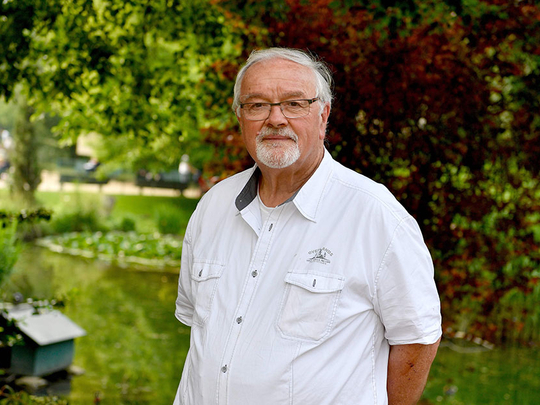
Paris: Ten families and a group of reindeer-herding youngsters have filed suit against the European Union, seeking stronger measures against the global warming they say is already harming their livelihoods.
From eight countries, in Europe and beyond, the group have an eclectic mix of stories.
Losing lavender
In the countryside of southeast France, the Feschet family have been farming lavender for three generations.
But regional warming of about half-a-degree Celsius per decade since 1950 is taking its toll on the fragrant plants.
"These last 15 years there have been climate complications unlike any we have seen before - micro tornados, torrential rains of 120 millimetres (4.7 inches) in two hours, and last year a five-month drought that really damaged our plantation," 72-year-old Maurice Feschet told AFP.
His son Renaud, who now runs the business, saw his income shrink by about 44 per cent from 2009 to 2016.
"There was a drought one year, followed by flooding the next, then spring frost," said the retired Feschet.
"Things have become untenable... My son wonders whether he will be able to continue this as a career and as for the grandson taking over, we don't even talk about that."
Goat herders' anguish
The Guyo family herds goats in northern Kenya, near the Ethiopian border. More frequent and extreme heatwaves, they say, have affected their five children's health and education.
Increasingly, the mercury soars above 40 degrees - too hot for the four oldest to walk the 1.5 kilometres to school.
"We face more and more extreme heat in our region. This threatens our lives on several levels," said Roba Guyo, the father of the family.
"Water is missing for herding and drinking - most importantly my children's health is in danger."
The youngsters experience skin rashes and headaches, he said, and are often tired as it is too hot to sleep.
Hungry reindeer
In the Arctic, climate change threatens the traditional life of the Sami people who have been raising reindeer in parts of Sweden, Norway, Finland and Russia for generations.
Almost all winters since 1989 have been warmer than average, according to representatives of the "People's Climate Case" filed before the European Court of Justice with the support of climate lobby groups and researchers.
Reindeer feed on lichen and moss that grow under the snow. But milder winters cause the snow to melt and refreeze, covering the animals' feeding ground with a hard, frozen layer.
"If we lose the reindeer, the Sami culture will be lost," said 22-year-old Sanna Vannar, who leads a Swedish group called Saminuorra, or Young Samis.
"Many of the Sami youth want to be reindeer herders, but they cannot see a future."
Too hot for honey
Ildebrando Conceicao's family has kept bees in central Portugal for decades, making a living from honey, pollen, propolis, and wax.
With warmer winters, pests that would normally be dormant now attack the hives at their most vulnerable. And in summer, temperatures can soar above 40 C, melting the honeycombs.
"Today, we don't have four seasons anymore, only winter and summer," said Conceicao.
"This situation is disturbing the work of the bees... The decrease in honey production... has reduced my family's economic income."
Production in 2017 declined by almost 60 per cent, and the family business is on the verge of becoming unprofitable.
Dwindling ice
In the Gran Paradiso National Park in the Italian Alps, the Elter family runs a small hotel that relies heavily on visiting ice climbers from around the world.
Glaciers are not only an important reserve of freshwater, but also "our only income during the winter season", said Giorgio Elter. But higher temperatures make ice-climbing dangerous and drives fans of the sport elsewhere.
"For us, this legal action is very important to raise awareness among our decision makers and supra-national institutions on the need to take more radical actions and measures to stop these impacts before they become irreversible and it is too late for all of us," he said.












